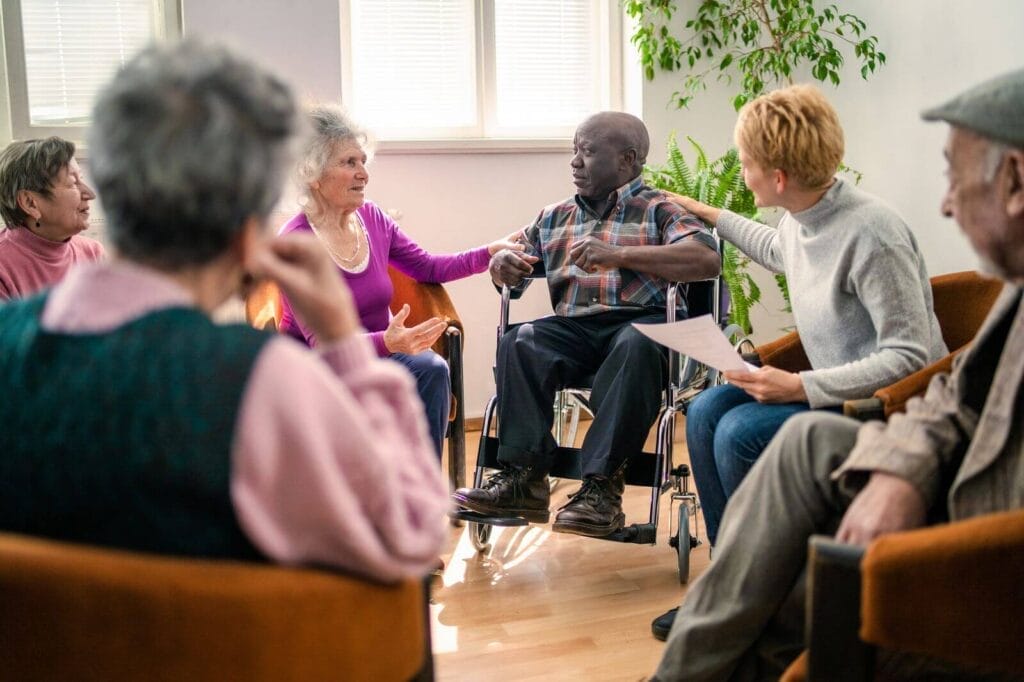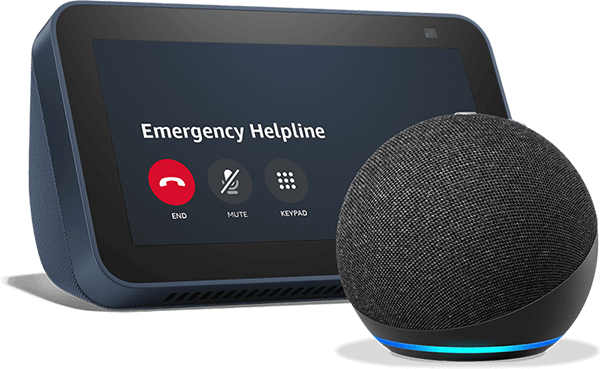
If you’ve recently been diagnosed with dementia, you’re likely experiencing many emotions. Concern about your future — and your family’s — is common with a new diagnosis. Many people also feel a sense of relief. Finally knowing what is wrong provides direction for moving forward. Some become determined to make the most of life. People with dementia can live active, rewarding lives despite their challenges. To do so, they surround themselves with the right support. They process their emotions to accept their diagnosis and make realistic plans to compensate for their limitations and adapt as their needs evolve. Dementia and Alzheimer’s support groups can be a great help in making the most out of life after the diagnosis.
Dementia and Alzheimer’s support groups
Dementia support groups are vital to living well with dementia. They can be great sources of emotional support, insight, and practical advice. The social connections forged in these groups often grow into meaningful friendships.
Different types of support groups exist. Finding the right fit for your unique needs is key to getting the most out of the experience. Let’s look closer at the options.
In-person meetings
There’s something irreplaceable about getting together with others in person. A hug and a handshake can go a long way. In-person support groups offer the opportunity to share the same supportive space with others, which can be therapeutic. Attendees often have recommendations on local resources and services. However, transportation or scheduling issues can be problematic, and availability may be limited, especially in rural areas.
Still, in-person support groups can be great for people who enjoy getting out of the house, have the means to do so, enjoy in-person interaction, and can find a suitable group that fits their schedule.
To find an in-person dementia support group, check:
- Your local senior center or Area Agency on Aging.
- The Community Resource Finder.
- The Memory Cafe directory.
Virtual or video conference meetings
Video conferencing has become a convenient way to connect with people worldwide without leaving the living room. Virtual meetings are convenient and easy for most people to access. You also might be more likely to find resources for rare conditions remotely than locally, if that is a concern for you.
Virtual meetings require internet access and some comfort with computers. Some people may feel uncomfortable speaking freely when others in the household can overhear. If you aren’t the most tech-savvy person or worry about being overheard, an in-person meeting might be a better option.
Virtual support meetings are still an excellent choice for people who can get online and feel comfortable speaking aloud about their situation in their home. They also benefit people who may not have the means to attend in-person meetings.
Virtual video conference dementia support groups include:
- The National Council of Dementia Minds.
- Dementia Mentors’ Virtual Memory Cafe gatherings.
Peer-to-peer dementia support groups
Family, friends, and professionals offer understanding, but nothing compares to talking with someone who has walked in your shoes. Peer-to-peer groups are led and run by individuals going through similar circumstances. Seeing someone with dementia in a leadership role can be inspiring and empowering. Although hosts may lack the broader expertise necessary for comprehensive guidance, peer-to-peer support groups are great for people who seek camaraderie, insight, validation, and inspiration.
Great examples of peer-to-peer dementia and Alzheimer’s support groups include:
- Dementia Alliance International’s virtual groups.
- The Dementia Action Alliance’s virtual discussion series.
Professionally led dementia support groups
Health care professionals or individuals trained in support group facilitation often lead support groups. They can offer a broad knowledge of resources, information, and expert guidance.
However, professionals may lack the personal experience that other types of support groups can offer. It’s also possible a fee will be involved, and availability may be limited. Still, professionally led support groups can be a great choice for those seeking a group with a more structured approach or who prioritize education over informal support.
Find a professionally led Alzheimer’s or dementia support group through:
Online communities and message board groups
Online communities and message board groups are available anytime you need a place to vent, ask questions, or read something inspiring. They offer 24/7 support and are generally convenient for people to access. People can easily remain anonymous if they wish and access a diversity of perspectives.
Although they can be helpful for people who can’t commit to a set meeting time, text-based communities offer less opportunity for personal connection and may be frustrating to navigate for tech-challenged people. There’s also a higher potential for misinformation and negative interactions, but if you can navigate technology, communicate well in writing, want diverse perspectives or anonymity, and appreciate round-the-clock availability of support, an online community might be an excellent choice.
Online communities and message boards for people with dementia include:
- The Alzheimer’s Association’s ALZConnected.
- The Memory People Facebook group.
Specific condition-focused dementia or Alzheimer’s support groups
Dementia is a general term for cognitive decline. It can be caused by diseases like Alzheimer’s or conditions such as strokes. Different types of dementia have different specific symptoms. Some groups support anyone with memory loss, while others focus on folks with specific diagnoses.
Condition-focused groups offer specialized information, support, discussions, and sometimes access to experts, which can be especially valuable to people with rarer forms of dementia. These groups may be harder to find, though, especially in person.
If you can find a group specific to your condition, it can be an excellent resource for people who desire in-depth knowledge and connection with others facing the same diagnosis.
Condition-focused dementia support groups include:
- The Lewy Body Dementia Association’s Living With Lewy Facebook group.
- Smart Patients’ Parkinson’s disease online community.
- Smart Patients’ brain injury online community.
What type of dementia or Alzheimer’s support group is right for you?
As you weigh your options for dementia support groups, consider the following factors:
- Do you prefer to meet in person or online?
- Will transportation or scheduling be problematic?
- Would it be good to get out of the house? Or difficult?
- Do you feel comfortable speaking freely at home?
- Do you need general support or specialized information about your specific condition?
- Are you able to access a virtual meeting or message board online?
Support groups offer many benefits to people with dementia. They can provide education and practical advice while addressing participants’ emotional, social, and psychological needs. Finding the right fit in a support group is important and may take time or trial and error. If one group doesn’t feel right, try another. Joining multiple support groups can be a good strategy. Finding the right Alzheimer’s or dementia support group can make a meaningful difference in your experience of living well with dementia.








